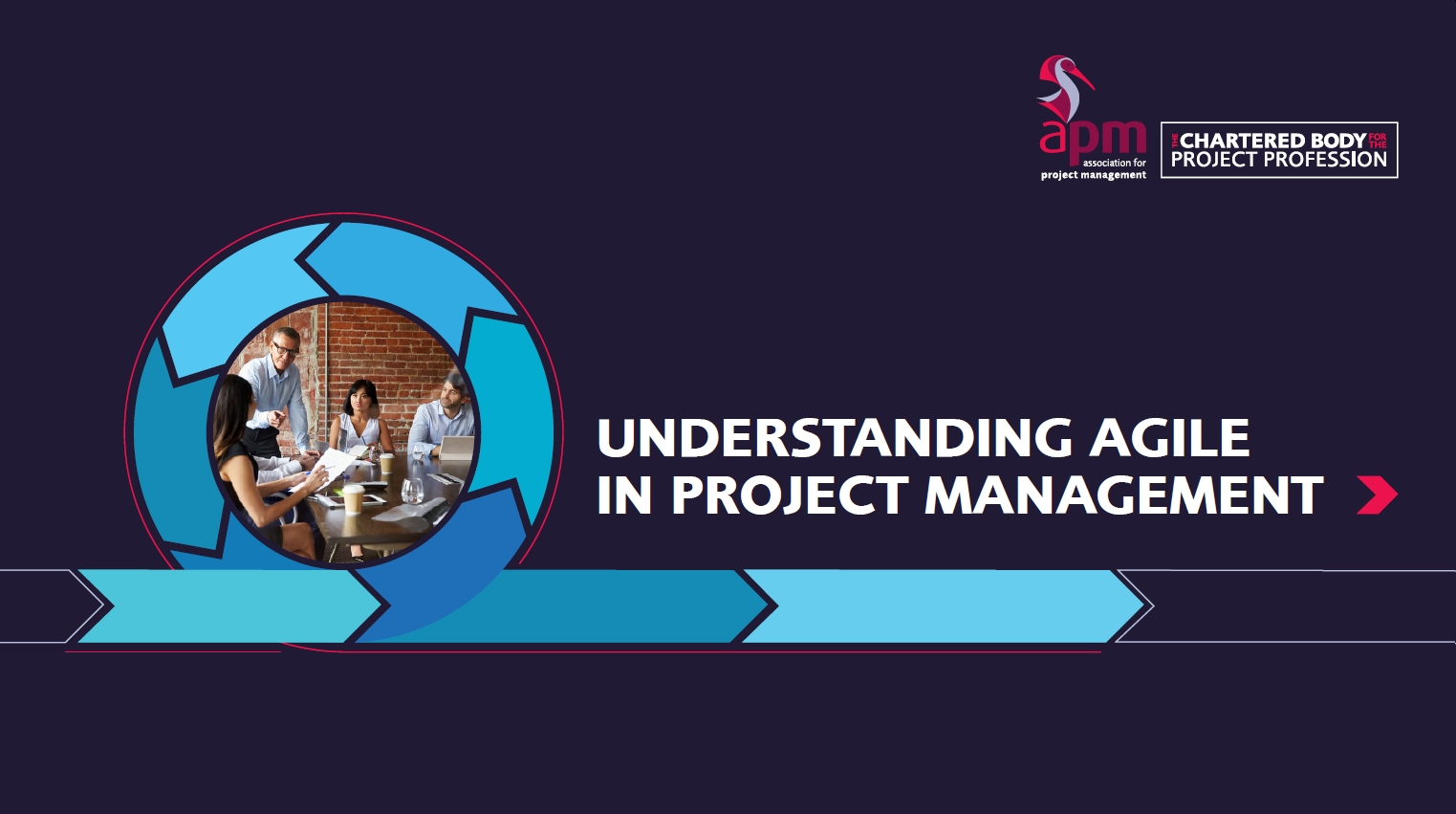Understanding agile in project management
Whilst agile is prevalent in project practice, little of this is grounded in evidence and theory, and there is a lack of credible academic research in contrast to other aspects of the project management domain. There is ambiguity around what is agile within the profession and lots of questions remain unanswered in terms of how is agile being used, and how effective is it particularly outside of IT and software development. Also, the limited available literature does not tend to explore the challenges and barriers encountered with implementing agile.
This report does not present a single definition of agile for the project management community. Rather, we explore existing practice in order to discover whether agile is valuable to project management, and why. We set out to explore agile practice, without first providing a definition. This research makes steps towards an enhanced understanding of the use of agile in project management. It also provides illustrative case studies of projects applying agile. Challenges are discussed in the successful adoption of agile. We also explore the motivation for agile, which includes improved project delivery through enhanced flexibility, adaptability and responsiveness in complex, uncertain and challenging circumstances.
The research team gathered data using a mixed-method approach, including a systematic literature review, interviews with 31 cross-sector project professionals, and a survey that attracted over 600 responses. Both the interviews and survey data showed that agile is overwhelmingly recognised as beneficial to successful project delivery and project team performance.
The use of agile in project management remains relatively new and is evolving for many organisations. The majority of participating organisations have less than five years of experience in practising agile. Our survey analysis indicated that experienced project professionals (with over three years of project management experience) hold more favourable views towards agile in project management.
Companies may gain limited value from ‘copying’ many forms of agile at the moment without wider organisational change. Overall, organisations’ competency and culture are not yet fully ready for agile, with no more than one-fifth of survey participants reporting a high level of readiness in either area. Yet, the majority (68 per cent) of the participants consider agile methods promising and will adopt agile in their future projects.
Agile as a professional practice is not yet well understood, and there is variation and disagreement amongst practitioners about its definition. Our empirical findings also echo what has been identified through our systematic review of existing literature on agile in project management - that existing academic studies are highly fragmented, and there is a lack of consensus over, and there is a lack of consensus and fundamental understanding of agile among scholars.
Incorporating transcribed verbal quotations from interviewees, this report draws on case illustrations to show how different project professionals and project-based organisations have already adopted and adapted agile for project management. The study reports on meaningful insights of current practice of agile and has identified significant future research directions to develop the theoretical and practical understanding of agile in project management. This is achieved through our systematic review of the extant academic literature and empirical findings from the extensive survey and case studies. The analysis examined areas stemming from relevant academic literature and was refined through the research process, which includes:
- Current agile status effectiveness and efficacy costs
- Culture and process
- Agile suitability project and organisation
- Practical suggestions challenges
- Future research
The full report is available to download here.
--Association for Project Management
Related articles on Designing Buildings
- Advanced manufacturing.
- Agile construction.
- Association for Project Management.
- Association for Project Management articles.
- Big data from smart infrastructure.
- Digital transformation - what does it mean?
- Dynamic conditions for project success.
- Lean construction.
- Lean construction - a quality perspective.
- Logistics management.
- Prefabrication.
- Resource management.
- Supply chain management.
Featured articles and news
UK Infrastructure: A 10 Year Strategy. In brief with reactions
With the National Infrastructure and Service Transformation Authority (NISTA).
Ebenezer Howard: inventor of the garden city. Book review.
The Grenfell Tower fire, eight years on
A time to pause and reflect as Dubai tower block fire reported just before anniversary.
Airtightness Topic Guide BSRIA TG 27/2025
Explaining the basics of airtightness, what it is, why it's important, when it's required and how it's carried out.
Construction contract awards hit lowest point of 2025
Plummeting for second consecutive month, intensifying concerns for housing and infrastructure goals.
Understanding Mental Health in the Built Environment 2025
Examining the state of mental health in construction, shedding light on levels of stress, anxiety and depression.
The benefits of engaging with insulation manufacturers
When considering ground floor constructions.
Lighting Industry endorses Blueprint for Electrification
The Lighting Industry Association fully supports the ECA Blueprint as a timely, urgent call to action.
BSRIA Sentinel Clerk of Works Training Case Study
Strengthening expertise to enhance service delivery with integrated cutting-edge industry knowledge.
Impact report from the Supply Chain Sustainability School
Free sustainability skills, training and support delivered to thousands of UK companies to help cut carbon.
The Building Safety Forum at the Installershow 2025
With speakers confirmed for 24 June as part of Building Safety Week.
The UK’s largest air pollution campaign.
Future Homes Standard, now includes solar, but what else?
Will the new standard, due to in the Autumn, go far enough in terms of performance ?
BSRIA Briefing: Cleaner Air, Better tomorrow
A look back at issues relating to inside and outside air quality, discussed during the BSRIA briefing in 2023.
Restoring Abbotsford's hothouse
Bringing the writer Walter Scott's garden to life.
Reflections on the spending review with CIAT.
Retired firefighter cycles world to raise Grenfell funds
Leaving on 14 June 2025 Stephen will raise money for youth and schools through the Grenfell Foundation.
Key points for construction at a glance with industry reactions.

























